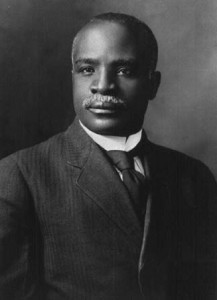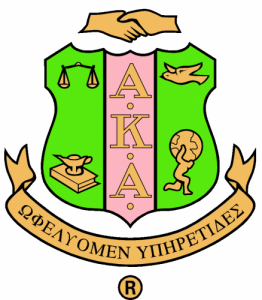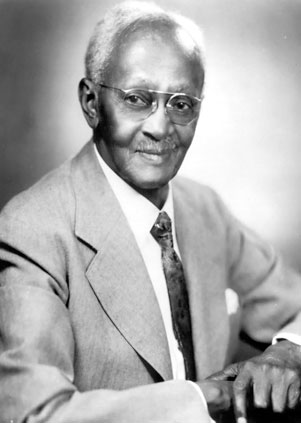Black History, Education

Kelly Miller
Kelly Miller was the sixth of ten children born to Kelly Miller, a free Negro who served in the Confederate Army during the Civil War, and Elizabeth (Roberts) Miller, a slave.
Miller received his early education in one of the local primary schools established during Reconstruction and, based on the recommendation of a missionary (Reverend Willard Richardson) who recognized Miller’s mathematical aptitude, Miller attended the Fairfield Institute in Winnsboro, South Carolina from 1878 to 1880.
Awarded a scholarship to Howard University, he completed the Preparatory Department’s three-year curriculum in Latin, Greek, and mathematics in two years (1880-1882), then attended the College Department at Howard from 1882 to 1886.
(more…)
Black History, Education
 Atlanta University, founded in 1865 by the American Missionary Association, with later assistance from the Freedmen’s Bureau, was, before consolidation, the nation’s oldest graduate institution serving a predominantly African-American student body. By the late 1870s, Atlanta College had begun granting bachelor’s degrees and supplying black teachers and librarians to the public schools of the South.
Atlanta University, founded in 1865 by the American Missionary Association, with later assistance from the Freedmen’s Bureau, was, before consolidation, the nation’s oldest graduate institution serving a predominantly African-American student body. By the late 1870s, Atlanta College had begun granting bachelor’s degrees and supplying black teachers and librarians to the public schools of the South.
In 1929-30, it began offering graduate education exclusively in various liberal arts areas, and in the social and natural sciences. It gradually added professional programs in social work, library science, and business administration. At this same time, Atlanta University affiliated with Morehouse College and Spelman College in a university plan known as the Atlanta University Center.
The campus was moved to its present site, and the modern organization of the Atlanta University Center emerged, with Clark College, Morris Brown College, and the Interdenominational Theological Center joining the affiliation later. The story of the Atlanta University over the next twenty years from 1930 includes many significant developments. Graduate Schools of Library Science, Education, and Business Administration were established in 1941, 1944, and 1946, respectively.
(more…)
Black History, Education, Law
 The NAACP Legal Defense and Educational Fund (LDF) is the country’s first and foremost civil and human rights law firm. Founded in 1940 under the leadership of Thurgood Marshall, who subsequently became the first African-American U.S. Supreme Court Justice, LDF was launched at a time when the nation’s aspirations for equality and due process of law were stifled by widespread state-sponsored racial inequality. From that era to the present, LDF’s mission has always been transformative: to achieve racial justice, equality, and an inclusive society.
The NAACP Legal Defense and Educational Fund (LDF) is the country’s first and foremost civil and human rights law firm. Founded in 1940 under the leadership of Thurgood Marshall, who subsequently became the first African-American U.S. Supreme Court Justice, LDF was launched at a time when the nation’s aspirations for equality and due process of law were stifled by widespread state-sponsored racial inequality. From that era to the present, LDF’s mission has always been transformative: to achieve racial justice, equality, and an inclusive society.
As the legal arm of the civil rights movement, LDF has a tradition of expert legal advocacy in the Supreme Court and other courts across the nation. LDF’s victories established the foundations for the civil rights that all Americans enjoy today. In its first two decades, LDF undertook a coordinated legal assault against officially enforced public school segregation. (more…)
Black History, Education, Firsts
 The First Black Sorority was formed on the campus of Howard University. The brainchild of Ethel Hedgeman, Hedgeman approached eight other women in the Liberal Arts School and soon Alpha Kappa Alpha was established as a Greek-letter organization in 1908. Founding members included Ethel Hedgeman Lyle, Beulah E. & Lillie Burke, Margaret Flagg Holmes, Marjorie Hill, Lucy Diggs Slowe, Marie Woolfolk Taylor, Anna Easter Brown, and Lavinia Norman.
The First Black Sorority was formed on the campus of Howard University. The brainchild of Ethel Hedgeman, Hedgeman approached eight other women in the Liberal Arts School and soon Alpha Kappa Alpha was established as a Greek-letter organization in 1908. Founding members included Ethel Hedgeman Lyle, Beulah E. & Lillie Burke, Margaret Flagg Holmes, Marjorie Hill, Lucy Diggs Slowe, Marie Woolfolk Taylor, Anna Easter Brown, and Lavinia Norman.
Initially seen as a source for enhancing the social and academic life of its members, it soon expanded its horizons to include enhancing the lives of those in the community. It was the second Greek-letter group established on campus, the first being Alpha Phi Alpha Fraternity.
In 1912, the undergraduate group embarked upon a plan to take the sorority in a different direction and decided to change the name as well as the symbols associated with it. One graduate member, Nellie Quander, opposed the change. She rallied the graduates together all of whom remained firm in their commitment to Alpha Kappa Alpha (AKA). (more…)
Black History, Education

Young men prepare to receive their degrees from Howard University in June 1942
On November 20, 1866, 10 members of the First Congregational Society of Washington, D.C., gathered for a missionary meeting. That evening, they decided to establish a seminary for the training of African American preachers. By early 1867, the founders had broadened their mission to include a liberal arts college and university. They decided to name the university for Major General Oliver O. Howard, a Civil War hero and Commissioner of the Freedmen’s Bureau, a U.S. government agency established in 1865 to aid freed blacks. Howard was also one of the early founders of the institution in Washington. (more…)

Black History, Business, Education

Richard Robert Wright, Sr.
Despite being born a slave on May 16, 1855, Major Richard Robert Wright, Sr. was a post-reconstruction pioneer and trailblazer, who made remarkable contributions in education, banking, politics, publishing, journalism, real estate, and civic affairs. Among his many accomplishments, he founded a high school, a college, and a bank; and owned several newspapers.
He also founded the National Freedom Day Association, and worked toward establishing a national day to commemorate freedom for all people.
On February 1, 1941, Major Wright invited national and local leaders to meet in Philadelphia to formulate plans to set aside February 1st each year to memorialize the signing of the 13th Amendment to the Constitution by President Lincoln on February 1, 1865. One year after Wright’s death in 1947, a bill passed both U.S. Houses of Congress, making February 1st National Freedom Day, and was signed into law on June 30, 1948. (more…)


 The NAACP Legal Defense and Educational Fund (LDF) is the country’s first and foremost civil and human rights law firm. Founded in 1940 under the leadership of Thurgood Marshall, who subsequently became the first African-American U.S. Supreme Court Justice, LDF was launched at a time when the nation’s aspirations for equality and due process of law were stifled by widespread state-sponsored racial inequality. From that era to the present, LDF’s mission has always been transformative: to achieve racial justice, equality, and an inclusive society.
The NAACP Legal Defense and Educational Fund (LDF) is the country’s first and foremost civil and human rights law firm. Founded in 1940 under the leadership of Thurgood Marshall, who subsequently became the first African-American U.S. Supreme Court Justice, LDF was launched at a time when the nation’s aspirations for equality and due process of law were stifled by widespread state-sponsored racial inequality. From that era to the present, LDF’s mission has always been transformative: to achieve racial justice, equality, and an inclusive society. The First Black Sorority was formed on the campus of Howard University. The brainchild of Ethel Hedgeman, Hedgeman approached eight other women in the Liberal Arts School and soon Alpha Kappa Alpha was established as a Greek-letter organization in 1908. Founding members included Ethel Hedgeman Lyle, Beulah E. & Lillie Burke, Margaret Flagg Holmes, Marjorie Hill, Lucy Diggs Slowe, Marie Woolfolk Taylor, Anna Easter Brown, and Lavinia Norman.
The First Black Sorority was formed on the campus of Howard University. The brainchild of Ethel Hedgeman, Hedgeman approached eight other women in the Liberal Arts School and soon Alpha Kappa Alpha was established as a Greek-letter organization in 1908. Founding members included Ethel Hedgeman Lyle, Beulah E. & Lillie Burke, Margaret Flagg Holmes, Marjorie Hill, Lucy Diggs Slowe, Marie Woolfolk Taylor, Anna Easter Brown, and Lavinia Norman.
